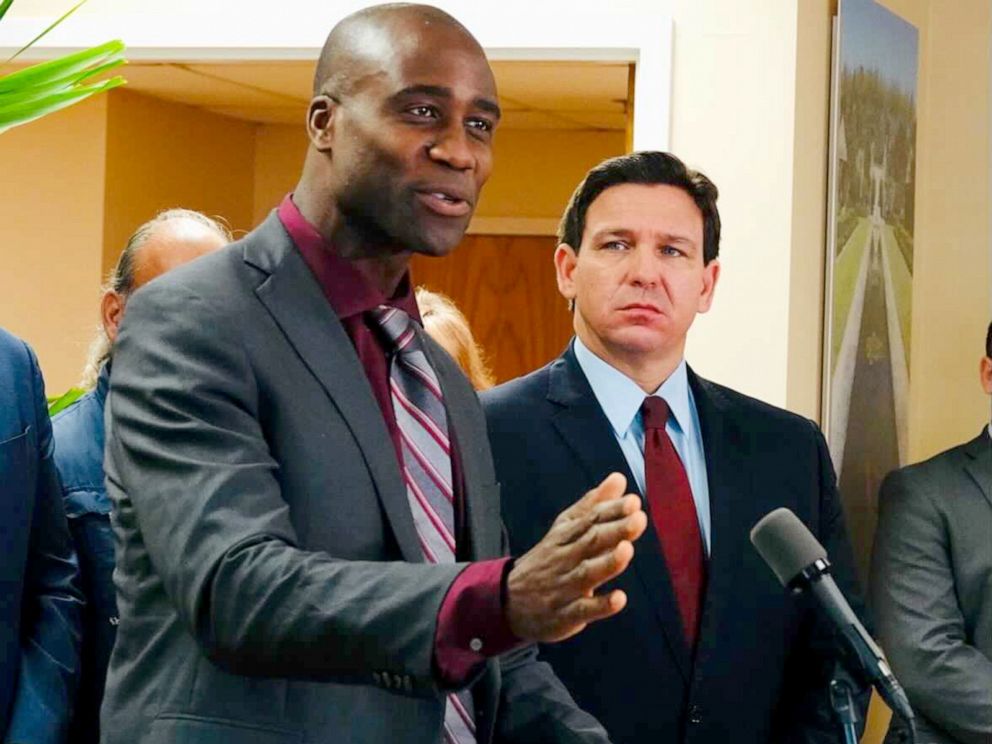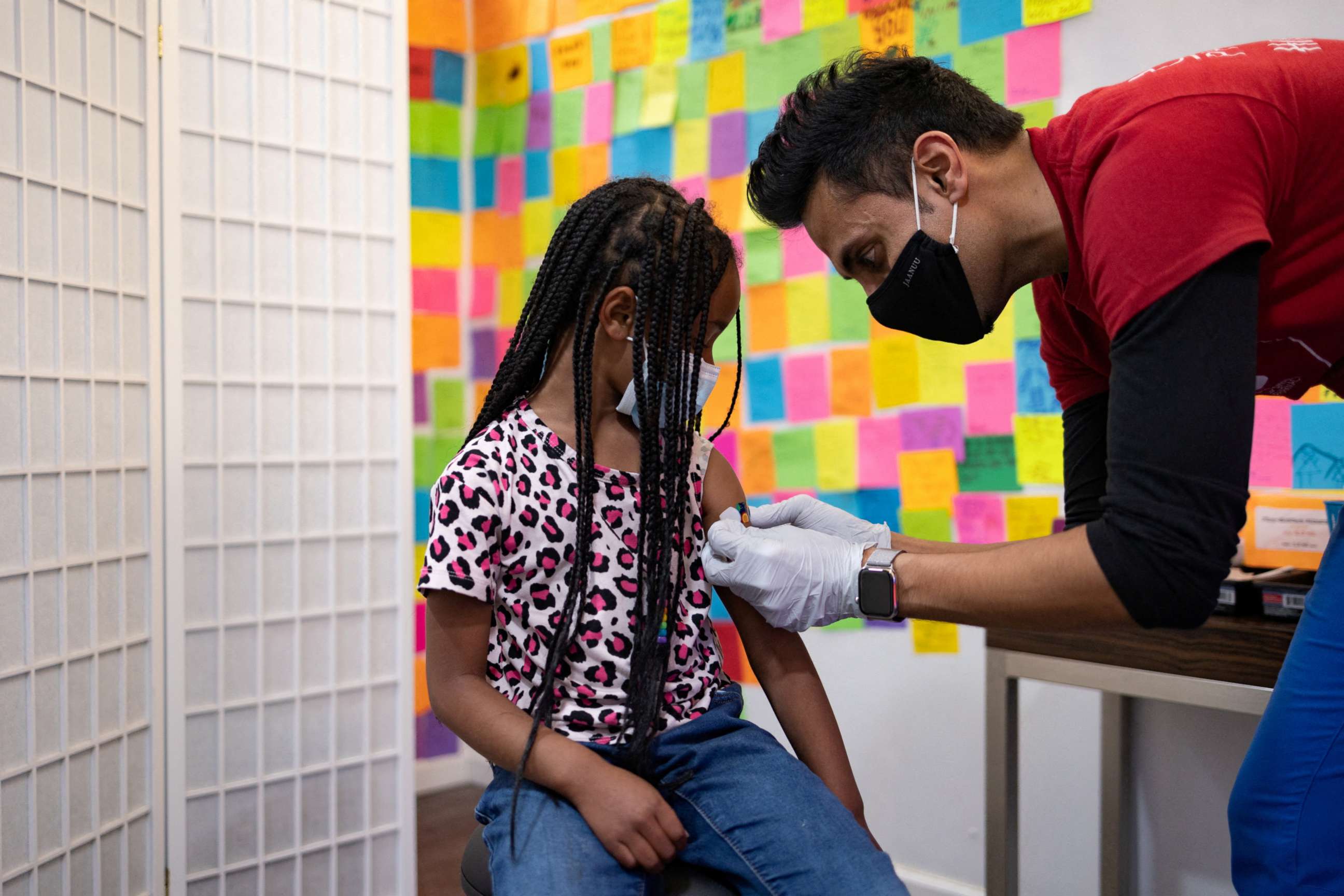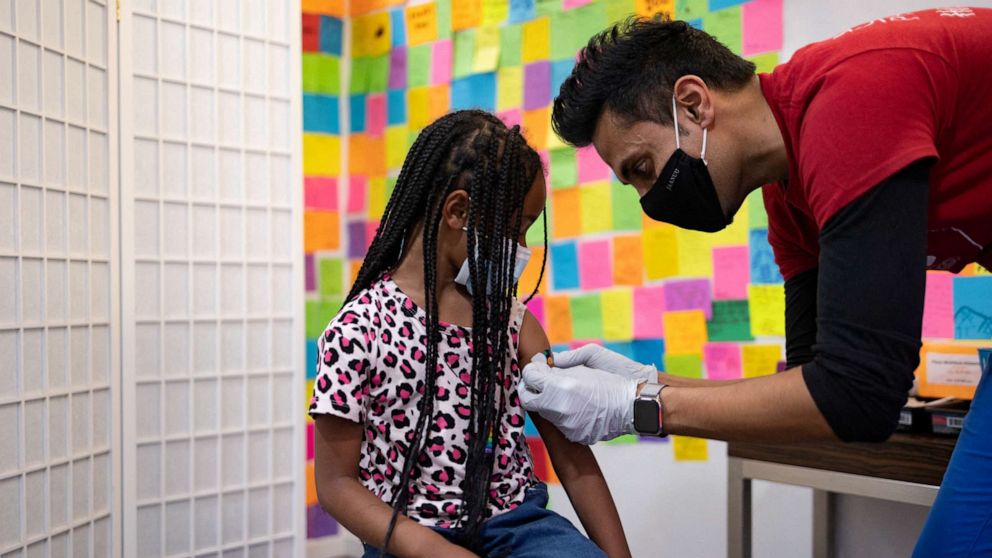Florida's decision not to preorder vaccines for young children will create access issues: White House
Florida was the only state in the U.S. that didn't preorder any COVID-19 vaccines for young children, federal officials said Thursday.
The Florida Department of Health did not want to be involved in a "convoluted vaccine distribution process," a representative from the department told ABC News in a statement on Wednesday.
"The Florida Department of Health (Department) has made it clear to the federal government that states do not need to be involved in the convoluted vaccine distribution process, especially when the federal government has a track record of developing inconsistent and unsustainable COVID-19 policies," the representative said.
In March, the state's Surgeon General, Dr. Joseph A. Ladapo, announced Florida would become the first state to officially advise against vaccinating healthy children for COVID-19.
"Already the rates were low. So, we're kind of scraping at the bottom of the barrel particularly with healthy kids, in terms of actually being able to quantify with any accuracy and any confidence, the infinite potential of benefit," Ladapo said at the time.

The representative for the state health department reiterated the health department still does not recommend the COVID-19 vaccine for all children.
"It is also no surprise we chose not to participate in distribution of the COVID-19 vaccine when the Department does not recommend it for all children," the representative wrote.
Doctors will be able to order vaccines as they are needed, the department said. However, the representative noted that there are currently no orders in the Department’s ordering system for the COVID-19 vaccine for these young kids.
On Thursday, the White House quickly pushed back on Florida's decision not to order any shots for young children.
"By being the only state -- this is Florida -- not preordering, which means that pediatricians, for example, in Florida will not have immediate ready access to vaccines, some pharmacies and community health centers in the state get access through federal distribution channels, but those options are limited for parents. We encouraged Florida on several occasions to order vaccines ... and we will continue to do so," White House press secretary Karine Jean-Pierre said during a press briefing on Thursday.
Jean-Pierre said the White House has been working with states for "some time" to ensure that if the vaccines are authorized by the Food and Drug Administration and the Centers for Disease Control and Prevention, the doses will be "shipped to places like pediatricians and children's hospitals, places where parents would get health care for their youngest or as quickly as possible."
With Florida not preordering vaccines, it will make it more difficult for parents to get a hold of vaccines for their young children, Jean-Pierre added.

Dr. John Brownstein, an epidemiologist at Boston Children's Hospital and an ABC News contributor, concurred, adding that access to the shots will be critical to uptake.
"Vaccines access and confidence are tightly linked. If you make it harder for parents to vaccinate their kids, it will reduce the likelihood they will, especially if on the fence. By not making preorders available to Florida vaccination clinics, you are doing a disservice to so many families who have waited over two years to vaccinate their youngest kids," Brownstein said.
Issues of equity may also be exacerbated, as some lower-income families may have a harder gaining access to the shots, Brownstein said.
"This rollout was already going to be the most challenging yet, especially with pharmacies playing a more limited role. By removing the state from the ordering equation, you are shifting a cumbersome process to pediatric frontline health care that is already stretched way too thin," Brownstein added. "More challenging access will unfortunately only serve to exacerbate health disparities. Minority and low-income communities that already have a more challenging time accessing vaccines will have less options available."
A committee of advisors to the FDA voted on Wednesday to recommend the Moderna vaccine for children under 6, which is a two-dose vaccine, and the Pfizer vaccine for kids under 5, which is a three-dose vaccine.
If FDA leadership chooses to officially authorize the vaccines, the administration can start shipping out vaccines to states. On Friday and Saturday, the CDC's advisers will meet to review the data on both vaccines for children.
Thus far, states have preordered 3.8 million doses of vaccines for the youngest children, according to the U.S. Department of Health and Human Services.
ABC News' Cheyenne Haslett and Sasha Pezenik contributed to this report.




